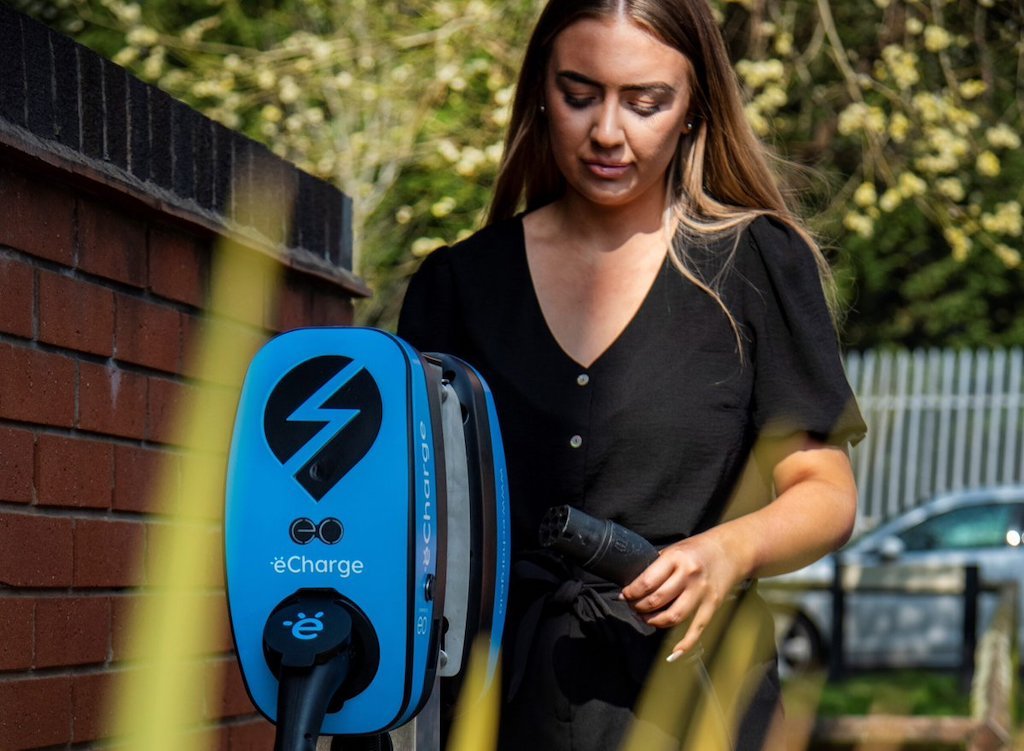eEnergy and EO Charging target EV charging across education sector
London based energy services company eEnergy has signed an exclusive agreement with EO Charging to deliver mass EV charging for the UK education sector.
The announcement is part of eEnergy’s plans to install at least 50,000 electric vehicle chargers by 2030 as part of its ambition to create the UK’s largest public sector charging network.
eEnergy points out that there are approximately 32,000 schools, colleges, and universities, and more than 600,000 teachers in the UK. “When combined with the 225,000 staff and 2.66 million students currently at UK higher education institutions, the education sector represents a significant underserved market to help accelerate the UK’s transition to low carbon transport.”
The first 200 installations with EO will be completed during April and at least 2,000 chargers will be installed within the first 12 months.
eEnergy says installing standard EV chargers is not financially viable for many schools and public sector organisations and to support the programme it has launched a new service – eCharge – which removes upfront costs.
By offering longer-term, fully serviced performance contracts, eCharge customers can install EV charging without upfront investment. The service will also offer new revenue opportunities, with schools and other organisations able to monetise their EV charging facilities by making them available to local communities or providing charging in place of parking fees.
Latest figures from the Department for Transport show that while there are now more than 250,000 home charging devices in the UK, only 2,038 devices have been installed through the government’s on-street charging scheme since it was established in 2017, meaning those without off-street parking are being left behind. eEnergy says its workplace charging rollout is actively targeting education and other public sectors with the greatest need, “ensuring staff, customers, students, and patients can all access the most reliable EV charging services”.
Harvey Sinclair, CEO, eEnergy said, “The government has rightly set ambitious net zero targets, and electric vehicles will play a fundamental role. However, ensuring everyone has access to reliable charging, especially for those who cannot plug in at home, poses considerable challenges. Like many employers, schools face a growing demand for EV chargers just as energy costs reach record highs. Our ambitious rollout will make life easier for teachers and other drivers by offering an affordable and accessible alternative.
Furthermore eEnergy’s model offers the potential to integrate EV charging with a broader net zero strategy. “By pairing workplace chargers with energy-saving technologies and clean energy procurement, everything from lighting to commuting can be powered using 100% fossil-free energy, cutting energy costs, and creating new revenue opportunities for the public sector.”
Charlie Jardine, Founder and CEO, EO Charging added, “Our partnership with eEnergy ensures critical net zero infrastructure can be widely adopted by the public sector as well as businesses, making EVs accessible to more people throughout the UK. Together we have built a compelling solution for those who are looking to install EV chargers as part of their broader net zero strategy.”
eEnergy expects to install up to 20 chargers per school or workplace, making a significant contribution towards the Government’s 2030 target. The company already provides energy services to over 600 schools and 2,000 other workplaces across the UK.
eCharge offers flexibility over the rate of charge and number of chargers on site, with 7 kW, 11 kW and 22 kW charging models available. A typical charger can deliver up to 80% charge in three hours and is compatible with all electric vehicles on the market, allowing staff to charge while at work.
eCharge will be led by Neil Campbell, who joins as Managing Director from his previous role as Managing Director at MoneyExpert, one of the UK’s leading price comparison sites.

